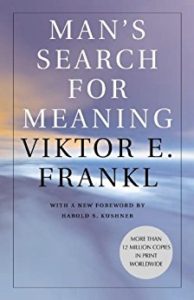 Viktor Frankl, a PhD-level Neurologist and Psychiatrist, spent three years in Nazi concentration camps during World War II. He survived that harrowing experience, not by any force of luck, but rather through knowing he had a purpose in this life. That purpose bred hope, and that hope sustained him until he could safely emerge on the other side of hate and continue living a life of meaning that he chronicles in his memoir, Man’s Search for Meaning. I am super late to this book and decided now—in a time when so many of us are hanging onto hope—was as good a time as any to read this book. My friend, and fellow Book Babe Jill, joined me in reading it and we decided an actual conversation was absolutely necessary. I was all, okay, twist my arm… and here we are.
Viktor Frankl, a PhD-level Neurologist and Psychiatrist, spent three years in Nazi concentration camps during World War II. He survived that harrowing experience, not by any force of luck, but rather through knowing he had a purpose in this life. That purpose bred hope, and that hope sustained him until he could safely emerge on the other side of hate and continue living a life of meaning that he chronicles in his memoir, Man’s Search for Meaning. I am super late to this book and decided now—in a time when so many of us are hanging onto hope—was as good a time as any to read this book. My friend, and fellow Book Babe Jill, joined me in reading it and we decided an actual conversation was absolutely necessary. I was all, okay, twist my arm… and here we are.
Lara: So, I was trying to figure out how I have missed this book for so long and I came to an embarrassing realization. I kept thinking it was over 1,000 pages (do I dare admit I was confusing him with Victor Hugo and Les Misérables?) and it also sounded super philosophical and scholarly (not that there’s nothing wrong with that).
Man’s Search for Meaning covers a miserable period in world history and it is a bit philosophical. But it’s way more accessible and impactful than I ever expected. Ever. And, it’s under 200 pages! What did you think? Can you believe you hadn’t read it until now?
Jill: I will see your embarrassing realization and raise you by one unit of mortification. I hadn’t even heard of the book before you told me about it! That said, how did I miss it? It’s superb!
The Holocaust is indeed one of the darkest, saddest periods in all human history. While Frankl does lean towards the philosophical and his work is grounded in psychiatry and logotherapy (psst…go off and research this on your own…fascinating!), he humanizes what could be very dry theories through the telling of his own concentration camp stories. It’s short, accessible, and deeply impactful for these troubled times we now find ourselves in.
Lara: The premise of Frankl’s memoir is simple and profound:
“Those who have a ‘why’ to live, can bear almost any ‘how’.”
This hit me. Hard. And I totally agree.
Jill: My first life and business mentor taught me the phrase, “Put the what before the how.” My life motto btw. In Frankl’s case, the “why” and the “what” are the same concept. It’s the focus on a person or a goal that is much bigger than ourselves that keeps us moving forward through the most difficult of times. The thought of our children, for example, can push us to do things we never thought we were capable of. I think what Frankl proposes so beautifully is that it’s not about what you would die for. It’s about what/who you will live for.
Lara: Exactly! And what I love about his explanation is that what is meaningful to us is as unique as we are. He shared the story of the fellow prisoner whose sole purpose for staying alive was to get back to his scientific research. He had spent his life dedicated to research and all of his findings were documented back home in his journals. That meaning kept him going. For someone else, it was returning to his family as he felt his life’s purpose was to be a husband and father.
Here’s the other thing Frankl is onto. We need to have purpose in our lives, no matter where we are in our lives. In fact, the sooner we determine our purpose, the better, because that is what will carry us through uncertain or challenging times.
Jill: Yes! Each of us finding our purpose, our “why”, is what keeps us going. The tough thing is that it usually takes us many years into adulthood to figure out what gives our lives meaning. We play at stuff, and check things out, but very few of us settle right into lives that bring us joy and fulfillment.
Lara: I totally agree with this. Imagine how much better off we would all be—and the world would be—if we all uncovered our purpose in the first half of our lives.
Jill: If we could figure it out sooner, we’d have more happy people living lives on purpose. There is a great deal of suffering in the world, particularly in the US where we have so many options, around figuring out what we want to “be when we grow up”…what our ultimate “why” is. I loved that Frankl helped his fellow prisoners learn their “why” for survival through conversation and visioning of their future. And, it was a win-win for him. He helped them AND kept his research going, thereby finding his own “why”. As you said, so simple, yet so profound.
Lara: It reminded me a lot of Louis Zamperini, whose story is told in the book Unbroken by Laura Hillenbrand. Zamperini was an Olympic runner who fought in WWII. His plane was shot down and he spent a mind-boggling 47 days afloat a raft in the Pacific Ocean. He was captured by the Japanese and survived three years in prison camps. Zamperini could always see himself alive and on the other side. Always. Just as Frankl could. That ability to know we have a role in this life, beyond this interruption (be it a prison camp, or a simple set back) is crucial to our ability to endure.
Jill: I haven’t read this book yet, but it now must go to a higher place in my TBR stack. The book that I read most recently that holds a similar ideology is The Happiness of Pursuit by Chris Guillebeau. Guillebeau submits that pursuing happiness isn’t the game. The real happiness is in the pursuit itself. Frankl noted this about pursuing success and happiness:
“Don’t aim at success. The more you aim at it and make it a target, the more you are going to miss it. For success, like happiness, cannot be pursued; it must ensue, and it only does so as the unintended side effect of one’s personal dedication to a cause greater than oneself or as the by-product of one’s surrender to a person other than oneself.”
Lara: I love that sentiment. We need to quit thinking of happiness as an end goal… I will be happy once I lose that weight/get that job/find my soul mate. Shawn Achor’s book The Happiness Advantage also dives into this concept. It’s really good stuff.
Were you as surprised as I was to find that there were moments—very brief moments—of humor and art and music Frankl and the other prisoners were able to create or experience while in the camps?
Jill: This actually didn’t surprise me. There is so much research that supports how art and music can be used to heal. Did you see the story going around on social media for a while about the 90-year-old man in a nursing home that had barely spoken in years, but one day when a piano arrived at the home, he started playing jazz and talking about his days in a band? I mean…amazing, right?
Lara: I did see that! And was amazed. And cried and all that. I am also a firm believer that humor is essential to our health. Even in the smallest doses. I think of what a little levity can bring to a challenging work project or tense negotiation. I can only imagine the sense of hope a smile or laugh can bring to someone experiencing something as horrific as imprisonment. That said, it can’t be easy; but it’s essential to survival.
Let’s talk about another big theme in the book: Love. Frankl writes:
“Love is the only way to grasp another human being in the innermost core of his personality. No one can become fully aware of the very essence of another human being unless he loves him. By his love he is enabled to see the essential traits and features in the beloved person; and even more, he sees that which is potential in him, which is not yet actualized but yet ought to be actualized. Furthermore, by his love, the loving person enables the beloved person to actualize these potentialities. By making him aware of what he can be and of what he should become, he makes these potentialities come true.”
I know this had to resonate with you.
Jill: It did. Especially the bit about seeing potential not yet actualized in another, and using love to help enable the other person to actualize potentialities. That is an overwhelming thought to me. That I have the power to enable people through love. Another great passage and one of the most beautiful sentences I have ever read lies in the last line of this quote:
“For the first time in my life I saw the truth as it is set into song by so many poets, proclaimed as the final wisdom by so many thinkers. The truth – that Love is the ultimate and highest goal to which man can aspire. Then I grasped the meaning of the greatest secret that human poetry and human thought and belief have to impart: The salvation of man is through love and in love.”
This is where Frankl got me. When we make the choice to do everything through love and in love…for ourselves, each other, our fellow humans, all sentient beings…what can be achieved (and endured) is remarkable.
Lara: The other day I saw the coolest print. It declared Kind is the New Cool. This is exactly what Frankl and others before and after him have been saying and proving is vital to our survival as humans and a human race. We need more love, acceptance, appreciation, and respect.
Jill: This is where it gets really tricky for many of us. There can be true evil in the world. We experience it daily by watching the news. How do we extend love to those that are unlovable? His quote is simply the best:
“Human kindness can be found in all groups, even those which as a whole it would be easy to condemn.”
Lara: What I take from that quote, is that to be able to find the kindness and the humanity, we have to break down the group connect on an individual level. It’s only at that one-on-one level that we can truly break through barriers of difference and achieve common ground.
Jill: Yes, it feels like something very crucial, very basic is missing in our world right now. We need human connection and kindness now, more than ever.
Lara: Thanks for chatting this really important book up with me. It’s a worthy read now, and really any time. We hope you will check it out!

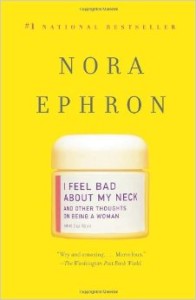
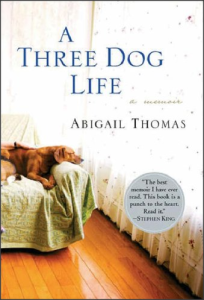
 It’s official: Size does matter. At least it does when it comes to books; and especially when we are talking about books that need to be consumed within a week. I found myself just yesterday afternoon still putting off the March book club mandate of 600+ pages and in an absolute tailspin about what to read this week that was short on pages, high on interest and starting with a letter of the alphabet that I hadn’t yet covered.
It’s official: Size does matter. At least it does when it comes to books; and especially when we are talking about books that need to be consumed within a week. I found myself just yesterday afternoon still putting off the March book club mandate of 600+ pages and in an absolute tailspin about what to read this week that was short on pages, high on interest and starting with a letter of the alphabet that I hadn’t yet covered.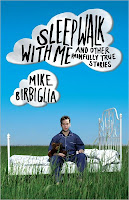 Anyone who knows me, knows I love, love, love Mike Birbiglia. He’s the funniest guy most everyone hasn’t heard of; but that’s about to change. And, no, not because of my review. But because he’s at that place in his career where he’s really taking off. He’s paid his dues growing up an awkward child, into an awkward adult, traveled the country doing standup in every venue imaginable (yes, even for a college study hall, while the kids were trying to study). He’s recorded a few comedy CDs, performed at some larger venues, like the Hollywood Avalon (where I saw him two years ago) and the Tempe Improv (where I saw him again last January). Last year, he had his own one man show, Sleepwalk with Me on Broadway and now he’s got a book, of the same title, that chronicles his life, including his issues with sleepwalking.
Anyone who knows me, knows I love, love, love Mike Birbiglia. He’s the funniest guy most everyone hasn’t heard of; but that’s about to change. And, no, not because of my review. But because he’s at that place in his career where he’s really taking off. He’s paid his dues growing up an awkward child, into an awkward adult, traveled the country doing standup in every venue imaginable (yes, even for a college study hall, while the kids were trying to study). He’s recorded a few comedy CDs, performed at some larger venues, like the Hollywood Avalon (where I saw him two years ago) and the Tempe Improv (where I saw him again last January). Last year, he had his own one man show, Sleepwalk with Me on Broadway and now he’s got a book, of the same title, that chronicles his life, including his issues with sleepwalking. This week has been a gloomy and doomy weather week. Bitter cold temperatures for our desert clime: rain, wind and some even said they saw snow! While I didn’t see any, I saw perfect weather for curling up with a good book; fitting that this is the last week of my book-a-week project. It also seemed rather fitting that during this last week of gray skies and personal contentment that I slide How Reading Changed My Life by Anna Quindlen off the shelf. Not sure how it took me so long to read this book that I have owned for a few years and yet it’s a bit serendipitous stumbling upon it now after a year of doing more reading than I have ever done before.
This week has been a gloomy and doomy weather week. Bitter cold temperatures for our desert clime: rain, wind and some even said they saw snow! While I didn’t see any, I saw perfect weather for curling up with a good book; fitting that this is the last week of my book-a-week project. It also seemed rather fitting that during this last week of gray skies and personal contentment that I slide How Reading Changed My Life by Anna Quindlen off the shelf. Not sure how it took me so long to read this book that I have owned for a few years and yet it’s a bit serendipitous stumbling upon it now after a year of doing more reading than I have ever done before. This week I am back to my favorite new genre, the Graphic Novel, discovered while undertaking this weekly reading challenge! No matter that it’s really the only new genre I have tried all year. It’s also no matter that it’s only the second time I have read from this genre. I mean who’s keeping score? Okay, I am. And at the end of the year I am going to have this wicked cool post full of stats and numbers (or as many stats and numbers that a Communications major can muster) and my fellow book nerds are going to love it and some will think it’s dumb and that’s okay, too.
This week I am back to my favorite new genre, the Graphic Novel, discovered while undertaking this weekly reading challenge! No matter that it’s really the only new genre I have tried all year. It’s also no matter that it’s only the second time I have read from this genre. I mean who’s keeping score? Okay, I am. And at the end of the year I am going to have this wicked cool post full of stats and numbers (or as many stats and numbers that a Communications major can muster) and my fellow book nerds are going to love it and some will think it’s dumb and that’s okay, too.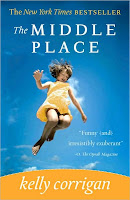 After reading LIFT by Kelly Corrigan, I was seriously jonesing (does anyone say that anymore? I guess I do) to pick up her first book, THE MIDDLE PLACE. After last week’s book club selection, I wasted no time cracking it open and I am not sure I even put it down once I started.
After reading LIFT by Kelly Corrigan, I was seriously jonesing (does anyone say that anymore? I guess I do) to pick up her first book, THE MIDDLE PLACE. After last week’s book club selection, I wasted no time cracking it open and I am not sure I even put it down once I started. For the past 33 weeks I have chosen a book to read and write about for this yearlong reading project. Sometimes the selection process is a thoughtful one; other times there’s not much more than a single thought in my brain as I reach up and grab the next book off of the shelf and attempt to dive right in.
For the past 33 weeks I have chosen a book to read and write about for this yearlong reading project. Sometimes the selection process is a thoughtful one; other times there’s not much more than a single thought in my brain as I reach up and grab the next book off of the shelf and attempt to dive right in.